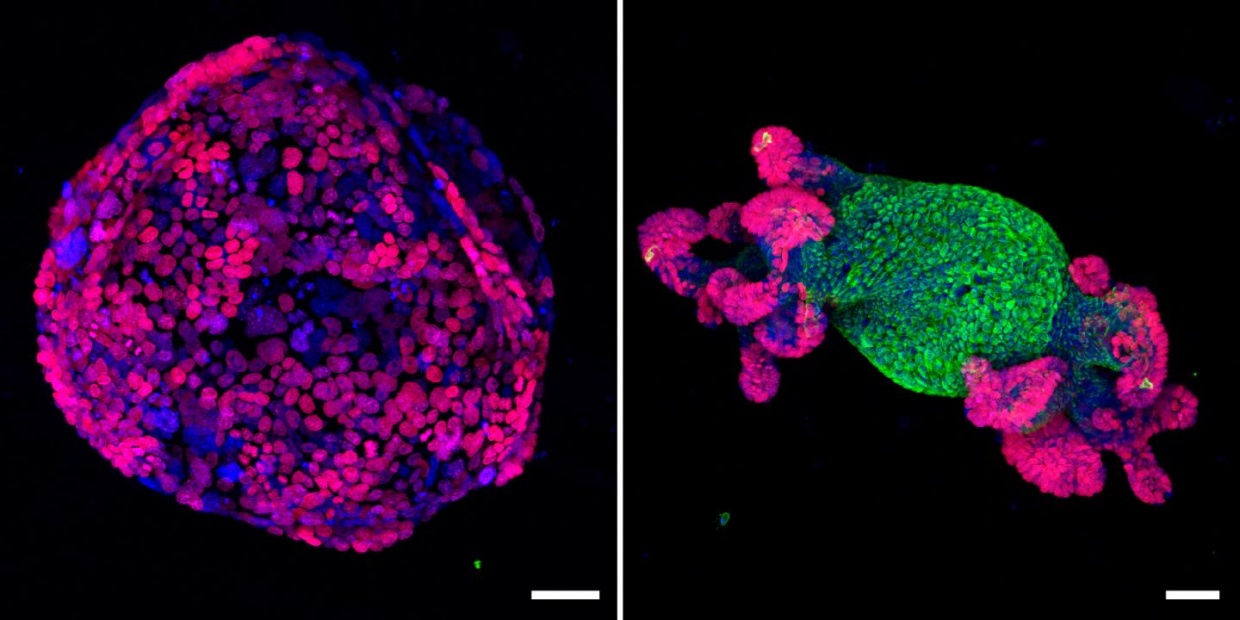Colorectal cancer is the second leading cause of

IMMUNOFLUORESCENT IMAGES OF INTESTINAL ORGANOID CULTURES. GENE SILENCING OF APC IN INTESTINAL ORGANOIDS TRIGGERED A CANCER-LIKE RESPONSE (LEFT). REACTIVATION OF APC EXPRESSION RESTORED NORMAL CELL DIVISION (RIGHT). Photo by: KEVIN P. O'ROURKE
Up to 90% of colorectal tumors contain inactivating mutations in a tumor suppressor gene called adenomatous polyposis coli (Apc). Although these mutations are thought to initiate colorectal cancer, it has not been clear whether Apc inactivation also plays a role in tumor growth and survival once cancer has already developed.
«We wanted to know whether correcting the disruption of Apc in established cancers would be enough to stop tumor growth and induce regression," says first author Lukas Dow of Weill Cornell Medical College. This question has been challenging to address experimentally because attempts to restore function to lost or mutated genes in cancer cells often trigger excess gene activity, causing other problems in normal cells.
To overcome this challenge, Lowe and his team used a genetic technique to precisely and reversibly disrupt Apc activity in a novel mouse model of colorectal cancer. While the vast majority of existing animal models of colorectal cancer develop tumors primarily in the small intestine, the new animal model also developed tumors in the colon, similar to patients. Consistent with previous findings, Apc suppression in the animals activated the Wnt signaling pathway, which is known to control cell proliferation, migration, and survival.
When Apc was reactivated, Wnt signaling returned to normal levels, tumor cells stopped proliferating, and intestinal cells recovered normal function. Tumors regressed and disappeared or reintegrated into normal tissue within 2 weeks, and there were no signs of cancer relapse over a
Although Apc reactivation is unlikely to be relevant to other types of cancer, the general experimental approach could have broad implications. «The concept of identifying
For their own part, Lowe and his team will next examine the consequences of Apc reactivation in tumors that progress beyond local invasion to produce distant metastases. They will also continue to investigate why Apc is so effective at suppressing colon tumor growth, with the goal of one day mimicking this effect with drug treatments.
«It is currently impractical to directly restore Apc function in patients with colorectal cancer, and past evidence suggests that completely blocking Wnt signaling would likely be severely toxic to normal intestinal cells," Lowe says. «However, our findings suggest that small molecules aimed at modulating, but not blocking, the Wnt pathway might achieve similar effects to Apc reactivation. Further work will be critical to determine whether WNT inhibition or similar approaches would provide


